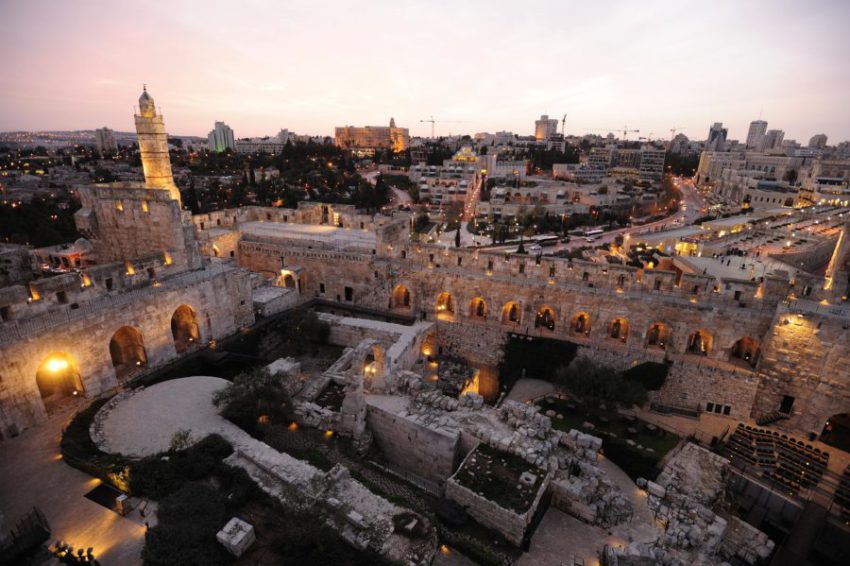Building on a very strong academic backbone, Jerusalem has emerged as a hub for life science and biomedical companies, with a number of ground-breaking achievements attracting the attention of associations around the globe—and the government offering financial support for international conferences to get here.
High-Tech Hub
Five years may not seem like a long time, but for a city like Jerusalem, half a decade feels like a century in terms of innovation success. Jerusalem has undergone a technology renaissance of sorts, with one of the fastest growing start-up scenes on the globe. The city has earned the title “Start-Up Nation” since it is home to over a thousand start-ups—the largest number of per-capita start-ups and venture capital investments in the world. Thanks to these investments, the number of active life sciences and hi-tech companies in Jerusalem has tripled from 150 to 570 over the past five years alone.
This has inspired both local and global enterprises, such as Kaspersky Lab and Rafael (Israel’s most important manufacturer of advanced defense systems), to expand their operations by moving to the city. “Jerusalem features two main hubs: education and biotech. Innovative companies have established their own hubs in Jerusalem through the contribution of academics coming from the university,” explains Dr. Joseph (Yossi) Tam, Director of the Multidisciplinary Center on Cannabinoid Research at The Hebrew University of Jerusalem. “One hub nourishes the other.”
Modern-Day Medicine
Jerusalem also features 17 academic institutions that build on a history spanning back more than two millennia. The Hebrew University, which ranks 23rdin the world, features the highest number of life science Ph.D. students in the country, with cutting-edge research in areas like biotechnology, computer science, astrophysics, cancer and solar energy.
Along with affiliate Hadassah Medical Center, the two institutions conduct over one-third of the country’s academic research, as well as 43% of Israel’s biotechnology research. With over 1,800 students graduating annually and setting out into the community, Jerusalem is continuing to build on its reputation as a powerhouse in the field of life sciences, with over 100 companies specialising in this sector.
Given the facilities and wealth of research stemming from the city, Jerusalem has gained notoriety as a leader in scientific and medical conventions and makes for an ideal conference host, attracting over 350 tech events per year that include everything from inspiration meet-ups to hackathons and conferences. “Jerusalem is the capital of Israel and attracts many people coming to the country,”Tam says. “Being a perfect mix of religion and invention, history and culture, modernity and life, brings together many people from around the globe to explore this beautiful city.”
In September 2017, mHealth Israel, the country’s largest medical technology conference, met for the fourth time in the city, bringing together over 500 attendees from more than 20 countries, over 80 percent of which were entrepreneurs. According to mHealth Israel founder Levi Shapiro in a press statement: “It is clear that Jerusalem is experiencing a boom in life science and Medtech investment and start-ups. Jerusalem offers the perfect setting for global C-level decision makers to meet innovative start-ups from across Israel, Europe and the US.”
Groundbreaking Gains
Jerusalem is also leading the way in cannabis research, thanks to the work underway at the Multidisciplinary Center for Cannabinoid Research at The Hebrew University of Jerusalem, which hosts an annual symposium on cannabinoids. Building on five decades of work started by Professor Raphael Mechoulam, “the father of cannabinoid research,”the center coordinates and conducts research on medical Cannabis and endocannabinoid activity and its therapeutic potential in treating disease.
In conjunction with the Jerusalem Conventions & Visitors Bureau, Dr. Tam helped persuade the International Cannabinoid Research Society (ICRS) to choose Jerusalem for its International Symposium on the Cannabinoids in 2021 at the Jerusalem International Convention Center (ICC), the same year asProf. Mechoulam’s 90thbirthday. For both Jerusalem and the Multidisciplinary Center for Cannabinoid Research, this is a huge win since the ICRS is the oldest scientific society dedicated to the research of the cannabis plant, cannabinoids and their physiological and biochemical targets.
“One of our first goals after establishing the center was to host the ICRS conference in Jerusalem so that the international community of researchers can learn about the highly advanced work in the field of cannabinoids carried out in the center and in Israel,” Dr. Tam said. “I am certain that hosting this high-level conference will constitute another turning point in Israel’s position as a global leader in cannabinoid research and development.”
The conference, which debuted in 1990, is one of the top in the field of cannabinoids research and brings together hundreds of leading researchers from scientific communities around the globe. In an effort to win the bid and compete with other nearby cities in Europe, the Jerusalem Conventions & Visitors Bureauwas able to price match leading locales to ensure the city was a top contender, serving as a one-stop-shop offering financial support of up to €50,000.
This article, whose unedited version can be found in this edition of Boardroom, was written by Boardroom editor Lane Nieset. More information on Jerusalem as a convention destination on www.jerusalemcvb.com.
| Smart Stats on Jerusalem Accessibility: Sitting halfway between Jerusalem and Tel Aviv, a 20-minute train ride away from the city, Israel’s international airport, Ben Gurion, is just a 4-hour flight from Europe’s major cities, with direct flights from 141 locations Venues: The Jerusalem International Convention Center (ICC) is the largest and leading conference centre in the country with 27 halls accommodating up to 10,000 attendees, including the 3,000-person Ussishkin Auditorium—the largest in Israel Accommodations: More than 17,500 rooms scattered across hotels suiting all budgets |
 Israel, Old City of Jerusalem, The Tower of David Museum: David’s Citadele (King David’s Tower), ancient citadel located near the Jaffa Gate entrance to the Old City of Jerusalem. UNESCO World Heritage Site
Israel, Old City of Jerusalem, The Tower of David Museum: David’s Citadele (King David’s Tower), ancient citadel located near the Jaffa Gate entrance to the Old City of Jerusalem. UNESCO World Heritage Site